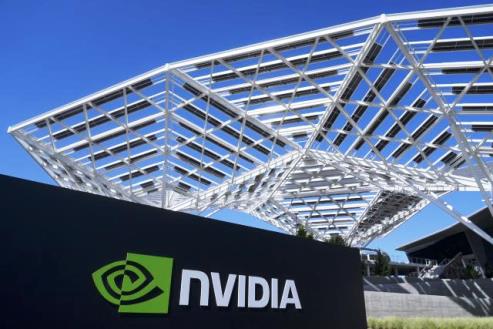China’s market regulator has launched an antitrust investigation into US chipmaking giant Nvidia, marking a significant escalation in the ongoing tech rivalry between the world’s two largest economies. Nvidia’s shares fell sharply following the announcement, as the probe raises concerns over the potential ripple effects for the semiconductor industry and broader US-China trade relations.
The investigation, focusing on Nvidia’s compliance with Chinese anti-monopoly laws—particularly its acquisition of Mellanox Technologies—comes amid heightened tensions over technological dominance. Semiconductors, critical for innovations in AI, 5G, electric vehicles, and defense, are at the epicenter of this intensifying battle.
Implications for US and Chinese Businesses
Nigel Green, CEO of deVere Group, described the investigation as a “calculated geopolitical maneuver” aimed at challenging US dominance in the semiconductor industry. “China’s move to target Nvidia signals the critical importance of semiconductors in the ongoing Tech Cold War,” he said.
The probe is widely seen as a response to recent US export restrictions on advanced AI chips and chipmaking equipment to China. With former President Donald Trump expected to amplify such policies, the US-China tech war appears poised to enter a new, more aggressive phase.
For US Businesses:
- Increased Risks for Tech Giants: Nvidia’s dominance in AI chips and its reliance on the Chinese market make it a prime target. The probe sets a precedent that could extend to other US technology firms operating in China.
- Pressure to Diversify Supply Chains: Companies may need to reduce reliance on Chinese markets and manufacturing to mitigate risks.
- Higher Costs: Reciprocal tariffs and restrictions could increase production costs, affecting profitability and innovation.
For Chinese Businesses:
- Opportunities for Domestic Growth: With the US restricting chip exports, China is likely to accelerate investment in local semiconductor production.
- Potential for Supply Chain Disruption: Chinese firms heavily reliant on US technologies may face operational challenges, but government support could offset impacts.
Semiconductors: The Key Battlefield
Semiconductors power virtually every aspect of modern technology, from smartphones to autonomous vehicles. The Nvidia investigation underscores how critical this industry is to both national security and economic competitiveness.
Green notes that this development is likely to spur governments and corporations worldwide to invest heavily in domestic semiconductor innovation. “This is not just another regulatory issue; it’s about the backbone of the global economy,” he said.
Opportunities Amid Rising Tensions
While the probe and broader trade war present risks, they also create opportunities for businesses and investors willing to adapt:
- Domestic Innovation: Governments will likely increase subsidies for local semiconductor production, creating growth opportunities for companies in this space.
- Diversified Investments: Firms with robust R&D pipelines and global supply chains are better positioned to weather geopolitical shocks.
- Defensive Assets: Non-US equities and defensive investments could provide stability during periods of increased market volatility.
A New Phase in the Tech Cold War
China’s antitrust investigation into Nvidia is a stark reminder that the US-China economic rivalry is deepening. With semiconductors at the heart of this conflict, the global tech landscape faces a period of uncertainty and transformation.
Nigel Green concludes, “This latest development is a wake-up call for investors and businesses. The stakes are high, and those who act decisively to navigate this new era of competition will reap the rewards.”






























